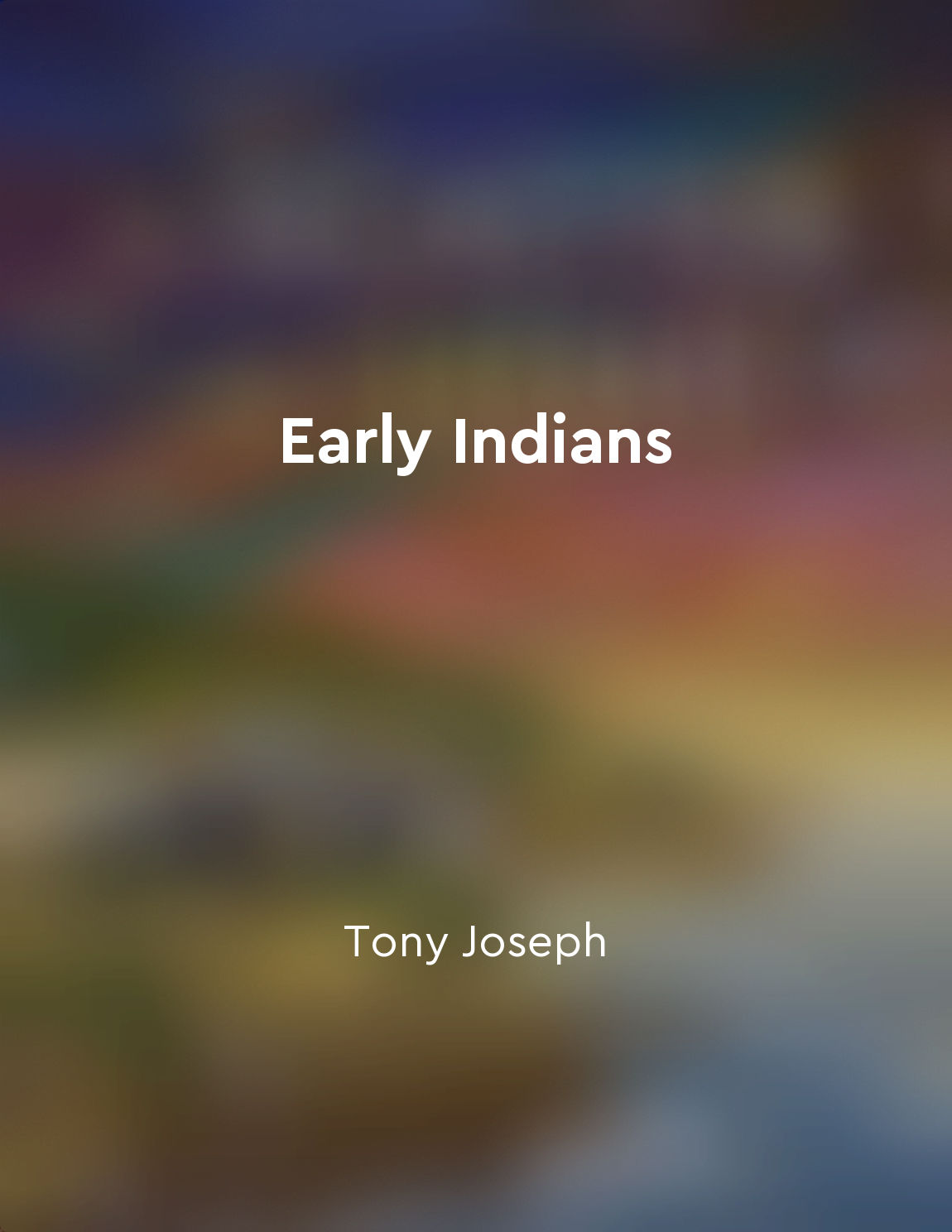Vedic literature provides insights into ancient Indian culture from "summary" of The Ancient History of India, Vedic Period by K. C. Singhal,Roshan Gupta
Vedic literature offers a window into the customs, beliefs, and practices of ancient Indian society. By delving into the verses of the Vedas, one can gain a deeper understanding of the cultural fabric that shaped the lives of people in that era. The hymns, rituals, and philosophical ideas found in these ancient texts provide valuable insights into the spiritual and social life of the time. The Rigveda, the oldest of the Vedas, gives us a glimpse into the religious practices and worldview of the early Vedic people. The hymns in this text are dedicated to various deities and offer prayers for prosperity, health, and protection. Through these hymns, we can discern the importance of rituals, sacrifices, and the concept of dharma in the lives of the ancient Indians. The social structure of ancient India is also reflected in the Vedic literature. The division of society into four varnas - Brahmins, Kshatriyas, Vaishyas, and Shudras - is evident in the texts, highlighting the hierarchical nature of society at that time. The duties and responsibilities assigned to each varna shed light on the roles individuals played within the community. Furthermore, the Upanishads, which are philosophical texts that form part of the Vedic literature, delve into metaphysical and spiritual concepts that were pondered by the ancient sages. Ideas about the nature of reality, the self, and the ultimate truth are explored in these texts, offering a deeper understanding of the intellectual pursuits of the time. By studying the Vedic literature, one can gain a holistic view of the ancient Indian culture, encompassing religious, social, and philosophical aspects. The texts serve as a valuable resource for scholars and historians seeking to unravel the complexities of a bygone era. Through the lens of Vedic literature, we can connect with the thoughts and beliefs of our ancestors, forging a link to our cultural heritage.Similar Posts

Hinduism has always embraced change
Hinduism, as a religion and way of life, has always been dynamic and adaptable to changing circumstances. From its earliest ori...
Nehru's policies shaped India's early years as a republic
Jawaharlal Nehru, the first Prime Minister of independent India, played a pivotal role in shaping the country's early years as ...
Modern interpretations of Hindu teachings
In today's fast-paced world, the ancient teachings of Hinduism have not been left behind. Rather, they have been adapted and re...
India's diverse culture continues to thrive
The rich tapestry of India's cultural heritage is woven with threads of tradition, innovation, and resilience. Throughout the c...

The role of rituals and festivals in Hindu practice
Rituals and festivals are essential components of Hindu practice, with a deep significance that goes beyond mere tradition or c...

Rigveda provides insights into early Indian customs and beliefs
The Rigveda, a collection of hymns composed over several centuries, offers a window into the customs and beliefs of early India...
The Vedic Period marks an important chapter in India's ancient history
The Vedic Period stands as a significant milestone in the ancient history of India, representing a time of profound cultural, s...
